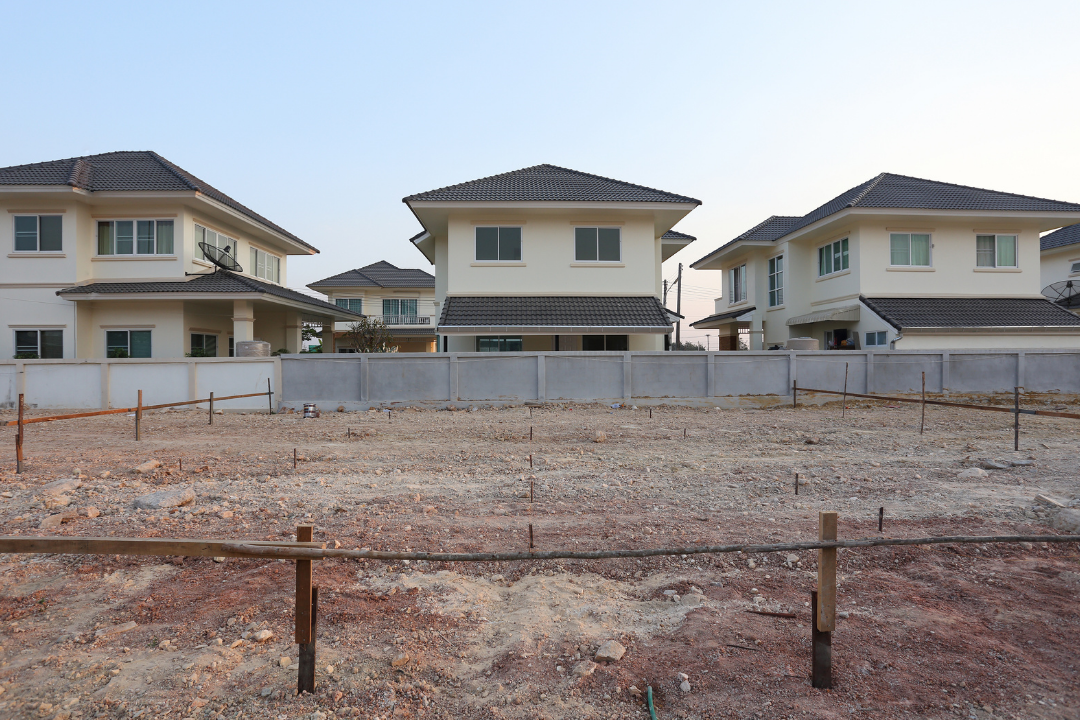Tools for California’s housing crisis: Surplus land requirements, sortition, and short-term rental policies
The Covid-19 pandemic exacerbated California’s housing crisis, adding even more urgency and complexity to an already dire situation. Land availability and housing affordability continue to dominate local policy discussions, while at the same time city leaders grapple with the best way to implement regulations for the growing short-term rental industry. Moreover, all of these decisions require significant public input. During the Annual Conference and Expo, hear from city leaders and industry experts about ways in which cities throughout the state can tackle the myriad of housing issues facing their communities.
An out-of-the-box technique for decision-making and resident involvement
Much attention is paid to protecting and expanding which decisions are within the control of cities. But there is another aspect to local control: how local policy decisions get made.
Elected and appointed officials make most local governmental decisions. However, there are some policy decisions where the city council knows it needs input from the community. Decisions should reflect local values and often require community buy-in to succeed. To complicate policy choices, there are plenty of circumstances where state or federal law limits a city’s options. Plus, there are some novel circumstances — like the COVID-19 response — where the community’s preferences are unknown. The usual response in these situations is increased community outreach, which often results in cities hearing from the same subset of residents and not getting a true pulse of the community.
Many elected officials are seeking completely different approaches to decision-making as they want to pivot away from the “way we have always done things”. One novel idea that is gaining momentum is called policy juries or sortition, where randomly selected representative members of the community are empaneled to learn about a topic, hear expert testimony, consider public comment, and make a decision. While the members of the policy jury are selected randomly, there is a process to ensure the jury reflects the demographics of the community, meaning the juries can truly be a microcosm of their city.
Sortition is more than just creating a “jury” of residents. Unlike juries in courtrooms, these residents are empowered to ask questions of experts and participate in developing the range of options to consider. Their deliberations are the real magic. Because of their composition and the trust that the city places in them, the policy juries will give all parts of the community a seat at the table. A facilitator can be used to make sure that all voices are heard, even from those individuals who may not be comfortable or confident in these types of public discussions.
In theory, this method would result in a well-informed decision truly reflecting the community’s values and would invest a greater number of residents in the governance of the city. In practice, could this be the best way to tackle housing policies? Policing policy? Wireless telecommunication facility regulations? COVID-19 local economic recovery plans?
Come hear how democracy by jury might be implemented at the local level and learn how to take local control to the next level in your city.
Christi Hogin is an attorney at Best Best & Krieger LLP and can be reached at christi.hogin@bbklaw.com. Linn Davis is the program co-director of Healthy Democracy and can be reached at linn@healthydemocracy.org. Alex Fisch is the mayor of Culver City and can be reached at alex.fisch@culvercity.org. Dennis Pocekay is a council member for the city of Petaluma and can be reached at dpocekay@cityofpetaluma.org. Wayne Liebman is a special consultant for Healthy Democracy and can be reached at wayne.liebman@gmail.com.
Session information: Thursday, September 23 | 1:15-2:30 p.m. | Ballroom B3
Legal issues: Land use, CEQA, and the Surplus Land Act
The availability and affordability of land for development greatly impact the supply of affordable housing. The aim of the Surplus Land Act (the “Act”) is to increase the availability of real property in California for affordable housing development by requiring public agencies to prioritize affordable housing when selling or leasing public lands no longer necessary for agency use.
Recent amendments to the Act, contained in AB 1486, place more emphasis on using surplus public land for the development of affordable housing, including:
- Expanding the definition of local agencies subject to the Act to include joint powers authorities, redevelopment successor agencies, housing authorities, other political subdivisions of the state, and any instrumentality of those agencies that are empowered to acquire and hold real property;
- Expanding the definition of what constitutes surplus land to, among others, include former redevelopment agency properties;
- Limiting what constitutes agency use of property to explicitly disallow commercial or other revenue-generating uses;
- Narrowly defining exempt surplus land
- Adding requirements that public agencies must make findings that property is either exempt surplus land or surplus land before beginning negotiations for disposition;
- Adding penalties for disposing of surplus land in violation of the Act that increase with multiple violations.
The amendments also targeted transparency of information, as AB 1486 requires the California Department of Housing and Community (HCD) to maintain a listing of all of the notices of available surplus lands throughout the state. AB 1255 expanded the central inventory requirement in the Act to include both cities and counties and further defined what information is required in the central inventory, that the information shall be a matter of public record, and that the information shall be reported to HCD annually.
The broad sweep of the bill’s amendments has resulted in public agencies having limited flexibility to address their myriad of needs and goals with the use of public land and has resulted in confusion regarding how the amended Act interacts with other statutes, such as the redevelopment dissolution law, laws pertaining to economic development, and military base closure laws.
Additionally, although the Act makes clear that it does not usurp local agencies’ land use authority, certain provisions in the Act limit local agencies’ ability to include in the terms of any sale or lease requirements regarding uses that would prohibit or limit residential uses, requiring careful navigation between the local agency’s regulatory and proprietary functions.
The HCD Guidelines impose additional burdens on local agencies, including requirements to use HCD forms for notices of availability and covenants restricting the use of property disposed of after completion of the Act’s process and adding additional reporting requirements. The many requirements in the Act can result in significant staff time ensuring compliance. Given the relative novelty of the amendments, it is yet to be determined how effective the Act is in fostering the development of more affordable housing. The additional supply of land should support the development of affordable housing. However, without sufficient sources of financing, land alone cannot solve the state’s housing crisis.
Karen Tiedemann and Erin Lapeyrolerie are both attorneys at Goldfarb & Lipman. Tiedemann can be reached at ktiedemann@goldfarblipman.com and Lapeyrolerie can be reached at elapeyrolerie@goldfarblipman.com.
Session information: Thursday, September 23 | 2:40-4:10 p.m. | Ballroom A7-11
Short-term rentals: A balanced approach
It often starts with complaints to the city or law enforcement about noisy late-night parties, cars parked everywhere, or trash strewn all over the place, sometimes accompanied by visits to the city council with passionate pleas to “do something.” A rapidly emerging short-term rental (STR) industry is taking some communities by surprise, not unlike Uber and Lyft in the ride-sharing industry. With 39% growth in STRs year-over-year, as reported by Airbnbcitizen.com, local governments should take an active approach.
Local officials who are savvy to the needs of neighborhoods, hotels, STR hosts, can craft policies using existing code that will strike a balance, ensuring market fairness and plenty of tax revenue to cover costs. Other municipalities more focused on neighborhood needs and tax compliance opt to add STR permit requirements to local code.
Located in the Bay Area and Sacramento area, San Mateo and Roseville, are two cities that came out of the gates early, pioneering different approaches to STRs based on their individual community needs. Both cities brought STRs into compliance, but with different approaches.
While Roseville changed its code to require STRs to obtain a permit and follow stringent permit requirements, San Mateo started by focusing on STR tax registration and compliance and later adopted permit requirements.
Taking an active approach, local officials should first seek to fully understand the benefits and challenges posed by STRs in their area. This includes putting an ear to the ground in neighborhoods, attending Chamber of Commerce and Tourism Improvement District Meetings, understanding the disposition of the city council, and checking the pulse of STR host community platforms. Then they should identify priorities with the help of their governing body. Once priorities are set, local officials should study their options and adopt policies and action items that align with their priorities.
With all this done, then it’s time to roll up your sleeves and get started.
Moderator Ryan George is the operations manager for HdL Companies and can be reached at rgeorge@hdlcompanies.com. Dennis Kauffman is the assistant city manager/chief financial officer for the city of Roseville and can be reached at DKauffman@roseville.ca.us. Lisa Wesley is the treasury and debt manager for San Mateo and can be reached at wesley@cityofsanmateo.org.
Session information: Friday, September 24 | 8-9:15 a.m. | Meeting Room 9-11



